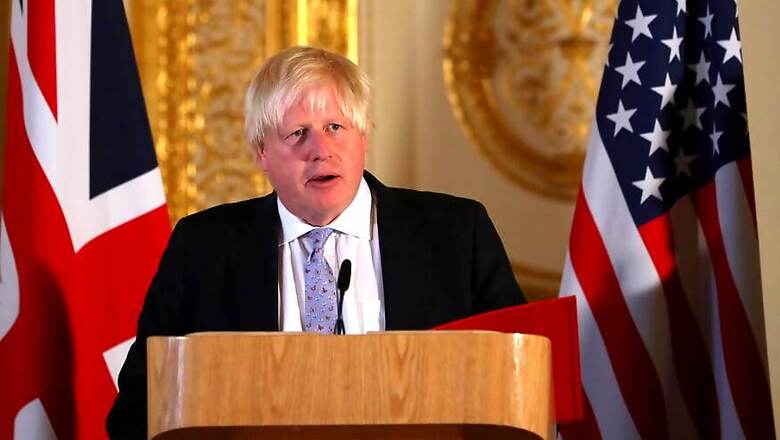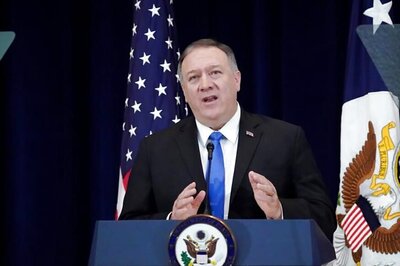
views
London: Britain's economy, lifted by the country's post-election political stability, risks fresh turbulence as Prime Minister Boris Johnson seeks tricky Brexit trade deals amid global threats that include the coronavirus.
Recent positive British economic data offset weaker figures at the end of 2019, but this is not expected to have a lasting impact despite government promises of major infrastructure spending.
On the eve of Brexit, there is a strong possibility that the Bank of England will later Thursday announce its first interest rate cut in more than three years, as economic headwinds gather on the horizon.
"There's still a huge amount of uncertainty over Brexit ahead of the deadline at the end of this year," OANDA analyst Craig Erlam told.
After Friday, Britain faces an 11-month Brexit period that expires on December 31, by which time Johnson will try to strike new trade deals with the EU and other countries around the world.
Erlam said despite data pointing to a slight uplift for the UK economy late last year, the outlook was far from rosy.
"If the government can do as they promise then the honeymoon can begin in 2021," he said.
Investors have been reassured by December's election triumph for Johnson's right-wing Conservative party, which coasted to victory on a pledge to get Brexit done on January 31.
However, outgoing BoE governor Mark Carney earlier this month said Britain's economic recovery is "not assured" despite a drop in Brexit uncertainties, prompting many analysts to forecast the central bank could cut its main interest rate by a quarter-point to 0.50 per cent on Thursday.
That would be the first reduction since August 2016 - when the BoE slashed rates to a record low 0.25 per cent after the UK's referendum vote in favour of leaving the EU.
The near-term health of Britain's economy will also be dictated by how key events- ongoing US-China trade talks and fallout from the spreading deadly coronavirus- will impact global growth, according to analysts.
"Our view is that the economy will see some pick-up in the early months of 2020 but then have difficulty kicking on from that," said EY economist Howard Archer.
A key indicator for the health of the UK economy is the British pound, which has gained strength in recent months following heady losses in the wake of the 2016 Brexit referendum.
Markets.com analyst Neil Wilson said that London-Brussels trade talks due to start on March 3 were "without doubt... the chief risk event for sterling and for UK equities going into the rest of 2020." The United States has said it hopes to reach a trade deal with Britain by the end of the Brexit transition.
The UK economy is experiencing mixed fortunes, with sliding investment but record low unemployment.
Turning to the outlook, economic growth is forecast to slow slightly to 1.2 per cent this year, according to the BoE's most recent outlook.
Erlam cautioned that GDP growth reflected the long-running turmoil that has haunted financial markets and businesses since Britons voted to leave the EU.
The economy grew by 1.8 per cent in 2017 before slowing to 1.4 per cent in 2018 - and is expected to have hit 1.3 per cent in 2019.
"I would call this counting the cost of Brexit uncertainty, rather than the impact of exiting itself," Erlam said in reference to the slowdown.
"That cost will come in the years ahead, assuming there is a cost," Erlam added, noting that leavers and remainers would "forever" dispute the positive and negative aspects surrounding Brexit.




















Comments
0 comment